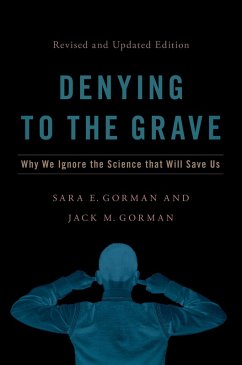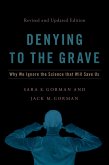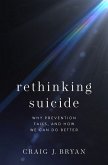With science denial as a rising danger to public health, Sara E. Gorman and Jack M. Gorman analyze society's resistance to scientific evidence relating to health and safety, and the tools to combat these tendencies. Why do some parents decide not to vaccinate their children? Why do some people keep guns at home, despite ample evidence that doing so increases the risk of a gun-related injury? And why do people use antibiotics for illnesses that antibiotics cannot possibly alleviate? When it comes to health, many people believe that science is wrong, that the evidence is incomplete, and that unidentified hazards lurk everywhere. In
Denying to the Grave, Sara Gorman and Jack Gorman explore the psychology of health science denial. Using several examples as case studies, they propose six key principles that may lead people to reject "accepted" health-related wisdom: the charismatic leader; fear of complexity; confirmation bias; fear of corporate and government conspiracies; causality and filling the ignorance gap; and the nature of risk prediction. This fully updated and expanded new edition of
Denying to the Grave reviews the most recent research on health science denial, offering a brand new chapter on how the contemporary "assault on science" waged by certain political administrations has eroded public trust in national health and science agencies, such as CDC, FDA, and EPA. Also new to this edition is a chapter investigating the relationship between health crises and misinformation, and what happens to science denial amidst a global public health crisis. Finally, the book proposes a novel approach to counteracting misinformation and improving our ability to understand and accept scientific consensus. In an era in which trust in science has become more important, and yet more elusive, than ever before,
Denying to the Grave sheds light on why we often choose to ignore scientific evidence, pointing the way toward a new understanding of how science should be conveyed to the public in order to save lives with existing knowledge and technology.
Dieser Download kann aus rechtlichen Gründen nur mit Rechnungsadresse in A, B, BG, CY, CZ, D, DK, EW, E, FIN, F, GR, HR, H, IRL, I, LT, L, LR, M, NL, PL, P, R, S, SLO, SK ausgeliefert werden.









